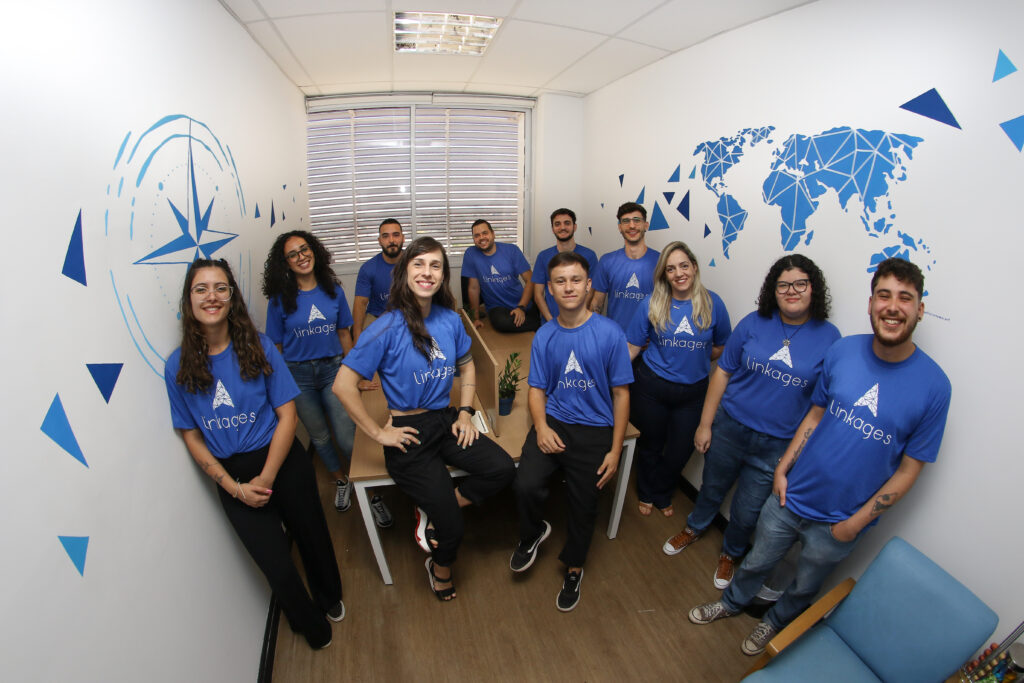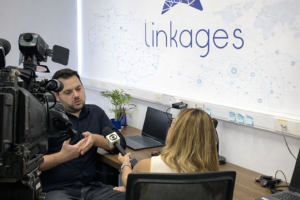Geomarketing is an interdisciplinary field that combines elements of geography, economics, statistics and technology. This way, you can analyze the market based on spatial and geographic data. This emerging field plays a crucial role in strategic decision-making for companies and organizations. Mainly because it allows them to understand the geographic environment in which they operate and adapt their business strategies according to spatial variables.
Firstly, geomarketing emerged as a response to the growing need to understand how location affects business. It had modest origins, with geographic data collection initially carried out on paper and, later, digitally. Subsequently, as technology advanced, geomarketing also evolved. With the use of geographic information systems (GIS) and advanced data analysis, a more in-depth understanding of market behavior at a local level was created.
With this evolution, new career opportunities have emerged for geographers, economists and related professionals, making geomarketing an increasingly relevant and dynamic field.
Read too: The geomarketing vision: market measurement and business expansion.
Geomarketing for those who are curious by nature and have an analytical vision
In the world of geomarketing, analysts play a prominent role in merging geographic and economic data. Basically, they illuminate companies’ path to success. By gathering information about population density, consumer behavior, location of competitors and the complex economic nuances of different regions, they are able to map the consumer journey and identify market opportunities that would be invisible to the naked eye.
On a daily basis, these professionals find ideal locations for opening new stores or offices. Likewise, they direct highly personalized marketing campaigns, making each customer feel special.
To shine in this career, geomarketing analysts must be experienced with GIS (Geographic Information Systems) tools and master geographic data analysis software. For example, ArcGIS or the versatile QGIS. They need to understand economic and market principles, navigating seas full of complex challenges that require insightful analysis.
At the same time, the ability to communicate findings in a captivating and influential way is essential. Just as working with numbers and large data sets is a daily routine, making a passion for data analysis an invaluable virtue in this profession that continues to grow and evolve.
So, if you're looking for a career that combines sharp analytical skills with an engaging geographic approach, geomarketing could be your perfect journey.
Geomarketing for those who enjoy hands-on processes
You market researchers play the role of adventurers, exploring and mapping the unknown territories of geographic and economic data. They are the explorers who dig into the details, identifying the insights that guide companies and organizations.
On a daily basis, these professionals are like tireless detectives, collecting raw geographic data, sifting through demographic and economic information, and thoroughly exploring patterns or trends. They conduct field research, conduct interviews, administer questionnaires, and analyze collected data. This way, you obtain the most in-depth information about the context and are not satisfied with superficial information or mere guesses, as you need to dig deep and reveal what really matters. This is the only way to allow companies to make decisions based on facts.
They work with geographic data analysis tools and geographic information systems (GIS), translating raw data into informative maps that guide businesses. To thrive as a market researcher in the field of geomarketing, you need to have a diverse set of skills. For example, a solid understanding of market research methods, statistical skills, proficiency in data analysis tools, and a curious mind that never stops exploring. Patience, attention to detail and the ability to delve deeper into data are fundamental traits, as these professionals work tirelessly to unravel the mysteries of the market.
If you are an information hunter, a data explorer and like challenges, market research in geomarketing could be the profession tailored for you.
Geomarketing also has space for those in the tech field

For technology professionals, geomarketing offers a range of exciting opportunities and unique challenges. They play a vital role in the evolution of the field, as they are responsible for building the means necessary to reach the end: decisions based on qualified data.
Here are some of the main job options for these professionals:
Geographic Application Developer:
Technology professionals can specialize in developing geographic applications that enable data visualization and analysis. They create customized solutions that facilitate access to critical information in real time, allowing companies to make agile decisions. These developers need to master programming languages and geotechnology tools such as JavaScript, Python, and mapping APIs.
Geospatial Data Analysis:
Technology professionals who specialize in geospatial data analysis play a central role in identifying trends and patterns in geographic data. They use advanced data analysis and statistical tools to translate complex information into actionable insights. Knowledge of geographic analysis tools, spatial databases and programming are essential to stand out in this area.
Development of Geographic Information Systems (GIS):
Geographic information systems (GIS) are the backbone of geomarketing. Technology professionals play a vital role in implementing, customizing, and maintaining these systems. They need to understand the nuances of geographic databases, spatial data integration, and be proficient in tools such as ArcGIS, QGIS, and MapInfo.
In addition to technical skills, these professionals are effective communicators, as they often translate technical information for non-technical management teams. The ability to solve problems and work as a team is essential, as geomarketing often involves interdisciplinary collaboration.
Academics and entrepreneurs: Linkages has both!

In addition to the career opportunities mentioned above, there is also the possibility of diving into the academic world, contributing to the research and development of new approaches or technologies on an individual basis.
Likewise, it is always possible to become an entrepreneur and transform innovative ideas into successful businesses. And the good news is that this feat can be accomplished regardless of your chosen profession.
Linkages itself is a perfect example of how the intersection between academia and business can lead to remarkable achievements. The company director, Lucas Baldoni, had the vision of founding Linkages within the university.
Today, Linkages is headquartered within the Unicamp Scientific and Technological Park and already offers advanced solutions that positively impact countless businesses.
Lucas continues to move between the academic world and the business world, bringing the best of both sides to students and clients. A clear example that our choices are just a small point of the final trajectory that we will trace in our career, the important thing is to start somewhere.
Are you interested in our solutions or want to know more about our methods? Schedule a meeting with us here.




